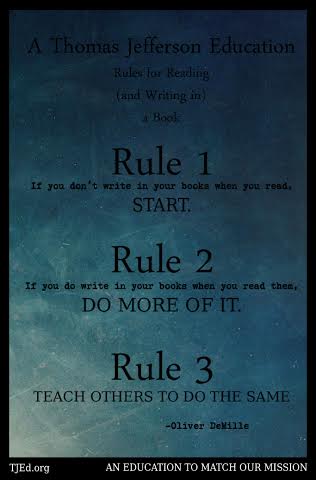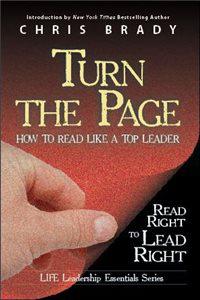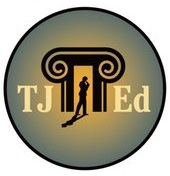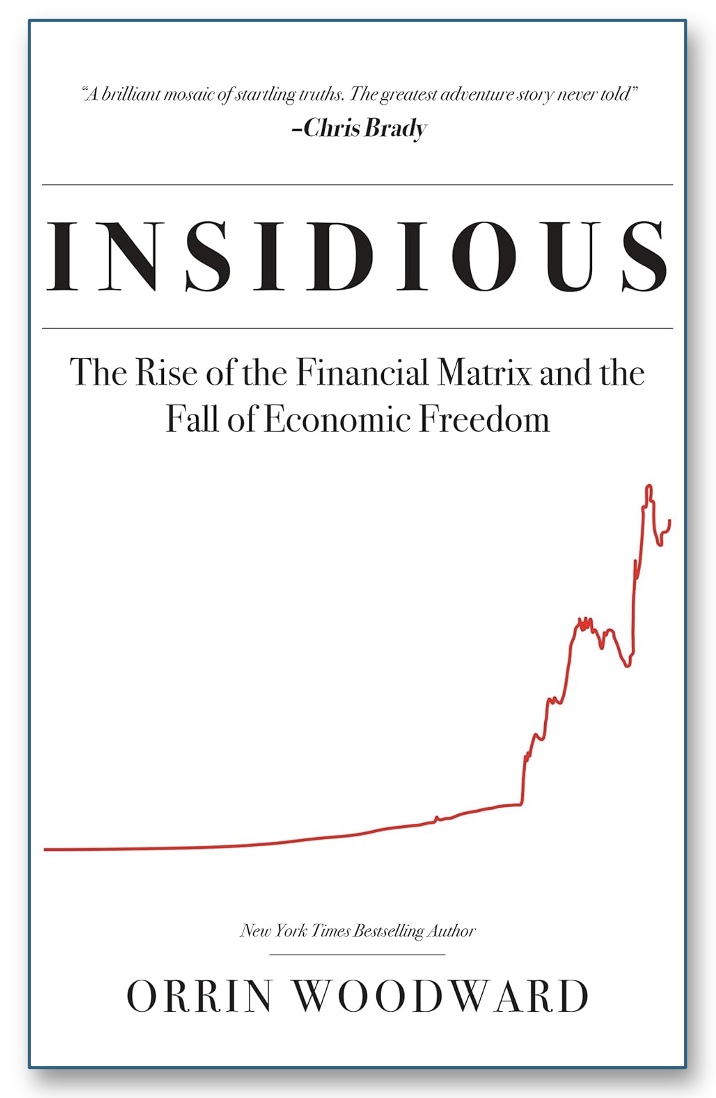Writing In Books is Vital to Real Learning
“Are you kidding me?” I asked in amazement. “Are you serious?”
The girl must have been surprised by my intensity, because she asked carefully, “Is something wrong?”
“Are you seriously telling me that your parents don’t want you to write in your own books as you read?” This time I questioned her in a more relaxed tone.
“Yes. They got very upset. I told them you taught the whole class to write in our books, and you told everyone to buy their own copies of each book specifically so we can write in them. I even told them that you said without writing in books we won’t learn nearly as much. But they were still mad at me.”
I couldn’t believe it. “But I know your parents,” I said, “and they’ve attended TJEd seminars and trainings for a long time. How did they never get the message that writing in books is vital to real learning?”
“I don’t know,” she replied. I could tell she was starting to get annoyed that I seemed frustrated with her instead of her parents, so I just smiled and said, “Well, I have a recommendation for you, if you’re willing. Would you please tell your parents that they absolutely must read the book Turn the Page and that it’s one of the best books they’ll ever read?”
She agreed, and I felt better. But this isn’t the only time this has happened, so I just had to write about it again.
Seriously, writing in your books is hugely beneficial to a good education.
Please consider ways to stitch this and frame it, or maybe carve it in marble and hang it on your wall for others to read. Or just blanket your email lists with this article. Whatever it takes. We’ve got to get the word out: Writing in your books really improves learning!
The Wrong Rule
I don’t think most people can actually get a the most out of their education without writing in their books. It adds so many dimensions and layers to their thinking—not only the first time you read a book, but every time you read it thereafter.
I’ve written so many articles and given so many speeches on this topic, and I’m excited to keep doing it. For some reason, many people have been taught that writing in our books is a bad idea. But it is an essential tool of quality learning, and it has been so for generations!
Scholars and leaders from time immemorial have participated in the Great Conversation by dialoguing with authors and readers in the margins and endleafs of their books. Of course, for the most part, these were elites who could afford a personal library.
Since the advent of lending libraries and widespread book sales, we of the “common” folk now have access to books – but we haven’t really given ourselves permission to “own” them, as great thinkers in the past did. Somehow we aren’t good enough, our thoughts aren’t great enough, to be worthy of recording.
I disagree!
We are not a subspecies, a separate race from these “supermen”, and the demands of free people to think and know are no less now than in times past. In fact, they are perhaps even greater!
A Great Discovery
 And now, finally, I’ve found a book that really teaches this principle, and teaches it well. Turn the Page is a must-read for anyone who wants a great education. You’ll want to read and reread it, and you’ll want to pass it on to every one of your children, friends and students—anyone who loves reading. For example, here is just one quote from Turn the Page:
And now, finally, I’ve found a book that really teaches this principle, and teaches it well. Turn the Page is a must-read for anyone who wants a great education. You’ll want to read and reread it, and you’ll want to pass it on to every one of your children, friends and students—anyone who loves reading. For example, here is just one quote from Turn the Page:
“[W]rite in your books! Don’t write in other people’s books, but do write in yours. Write in the margins. Write things like “Wow!,” “I disagree,” “!,” “?,” “So true!,” etc. Write out sentences or just a word or two in the margins. Underline key sentences and circle great passages.
“Also take notes in the blank pages at the front and back of the book…. ‘As you read, use notations, stars, smiles, exclamation points, etc. When you finish a book, go back and read your own highlights and underlines before putting the book on the shelf. Discuss what you’ve read with someone soon after reading it, and apply what you’ve read to something in your life immediately….’ [C]reate an outline of the book in the pages at the back of the book, and keep a list of new vocabulary words in the front….
“[M]ark the most important pages by leaving sticky notes, or folding down the corners. This allows you to really own your book, and your learning process.”
Have a Conversation
Guess what I wrote in my copy of this book, next to these quotes? “Right on! Exactly! Perfect! We’ve got to help people learn this message. It will have such a huge impact on quality education. Teaching people to read the classics is good, but without writing in the classics, they’ll never get a truly great education!”
I just wish the book had wider margins so I could write a lot more.
So, seriously, write in your books! This will have a huge impact on the depth and quality of your learning. It’s also really fun, and helps you retain what you’ve learned so much better.
In short: Follow the three rules! Let’s increase great education far and wide…
Mentor Summary:
Rule 1- If you don’t write in your books when you read, start.
Rule 2- If you do write in your books when you read them, do more of it.
Rule 3- Teach others to do the same.
For help in engaging your education, and mentoring others in their learning, join us for Mentoring in the Classics >>
<script type=”text/javascript” src=”https://vn399.infusionsoft.app/app/webTracking/getTrackingCode”></script>





































I heard this idea several years ago in a college English Writing class, and applied it mostly just in class, but to hear it reiterated made me remember so much of what I read years ago, and all the feelings about What I read, because I noted my thoughts in the margins, like this says to. It also made me think of some “fluffy” books I have read that are hardly worth annotating in… Are books worth reading if they are Not worth writing in as well (if they are yours)? I remember Loving to express my ideas and thoughts In the books I read. Thanks for reminding me.
Would you recommend this book over “how to read a book” by mortimer adler? I’ve had that one on my wishlist for a while.
I absolutely would, Sara Santos. No question.
This is a great article, making reference to a fantastic book. I received this book just a few days ago through a LIFE subscription, and I can’t put it down for long.. I’ve been reading for self improvement for about three years now, and can’t help but think what an assets this kind of Leadership Reading is for anyone who wants success in any area.
It is so great to see my own personal growth from the first time I read a book to the next time, and the next. Writing in your books allows you to see where you were at (thinking wise) the last time you read it which enables you to really see for yourself how your thinking may have changed since then. There have been numerous times when I have picked up a book and either dissagreed with something I had previously thought or been reminded of something I had forgotten through my previous comments in that book. Funny how my high school and college text books never had that effect…
Great reminder! I love to write in my books! I write definitions, and do circle good quotes. I like the idea of putting more detailed notes in the front and back. After I read “How to Read A Book” which I just received in the mail, I will add this to the list too, it looks wonderful!
I love to write in my books, including my scriptures. I sometimes keep my own “index” on a blank page in the front or back of a book so I can find important treasures again later. ‘m not able to read as much as I would like to, but sometimes just having a particular book on the shelf brings a reminder of what it teaches even though I haven’t visited it in person yet. Sometimes I take a quick trip to the middle or end of a book. The banquet table is wonderfully filled with more than I can eat. Thanks for helping me feel a little less crazy about my reading habits.
I love writing in my own books. I agree that it is helpful. As a homeschool single mother of five, I have not allowed them to write in their books because I need to pass the book along to younger children. Do you think it would work to have each child write in the book with their own color? Do you see another solution?
In our house, reading each others’ comments is a great delight, and something that really endears my children to each other! The color thing might be great. Never thought about it. We can usually pick it out from handwriting, but of course underlines would be a little ambiguous. We never really worried about it. It’s sort of a treasure hunt to try to guess who did what. But if it’s important to you to know who made what mark, colors seem like a great idea!
I underline quite a bit as I can’t seem to follow things without doing that. And I do this in my scriptures. But I never thought of making remarks-so I begin now. I have been making notes in my scriptures from Hebrew meanings and a commentary. I also make scripture subject trails- put the first verse on a blank page with a little mark after it, then go to that one and write the next one with a mark- until the subject is thoroughly finished and then I write the first one at that verse with a mark so I am back to the beginning. Two problems for me is that I have piles of scriptures that are worn out, and I wonder what will happen to all of my marked up books, as a library will not take them and many are valuable. My step grands don’t read. I have tons of books all over the house.
I love this. I haven’t been doing it, but I look forward to starting. I will start with one of my favorites, Til We Have Faces by C.S. Lewis. It totally makes sense, after all we mark our scriptures to hep us get more out of them.
I have a question though. Will I get the same benefits from usig an ereader, and highlighting and making notes? I love my ereader! But I value my education more, so I will return to paper if I must. 🙂
Your call, Leslie! E-readers sometimes have great annotation features that are synchable and shareable. We’ll probably stick with paper and ink, but whatever gets the books into you has my vote!
My sister and I love to share books that the other has written in! It makes the book that much more meaningful and insightful. I have a bible my grandfather owned and my only regret is that he didn’t write much in it. I would have so loved to know what were his favorite scriptures and what were his insights and questions. It wasn’t until I started writing in my books that I transitioned from “entertainment” reading to what I call “improvement” reading. Now I really want to read the book “Turn the Page” and see what more I can do.
It makes sense to me to not allow your children to write in a book that doesn’t belong to them and which other people are going to be reading after them. And there is an easy solution to getting around this limitation: Buy a journal or notebook, and record your questions and insights in it along with the name of the book, page number, and line number that prompted the insight. Andy Groft taught me to do this in my last year at George Wythe College, and after doing it for some time I can say that there are a lot of benefits to doing this while at the same time having very few disadvantages that I can speak of.
Regarding the grandmother who despairs of being able to pass on her valuable books to non-reading grandkids. Don’t give up yet. Look for that one unusual child, whether grand child or neighbor, who resonates on the same frequency. They are out there. You can be that life-changing mentor who passes on the wisdom you have gleaned. Hold out until that child appears!
I wonder if you can talk to Obstacles Press and request that this book be produced in digital format…? Or maybe I could do that, I’ll look them up. That would help all of us on e-readers.
I love this article! I was just talking to my choir on Sunday and told them to write on their music. Circle mistakes, highlight their parts, mark up the music. This concept goes into so much more then just reading books!